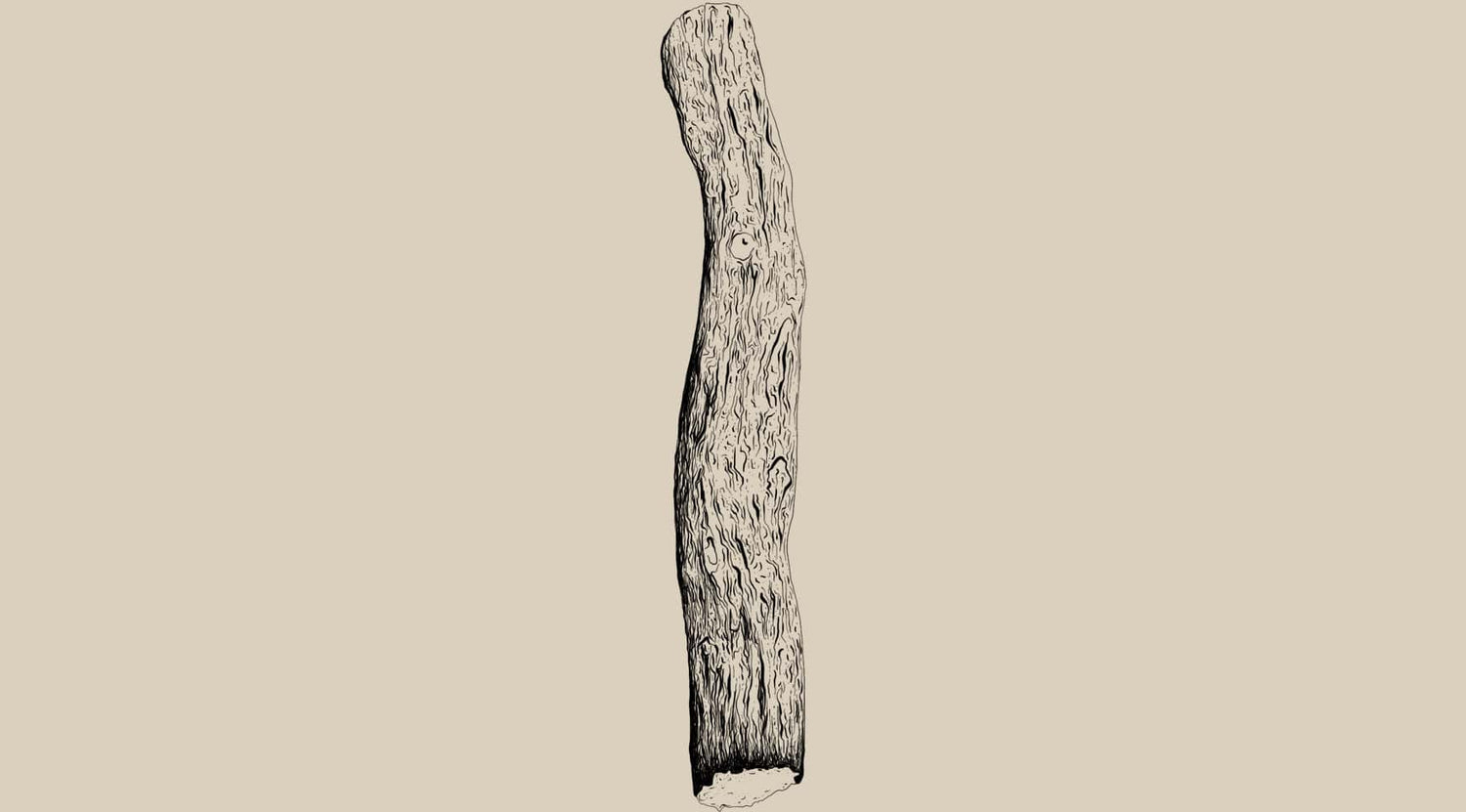Mushroom + Gut Relief
Traditionally used in Chinese medicine to maintain immune system health and in Western herbal medicine to relieve symptoms of indigestion
Purchase any two items, get your choice of free Mushroom powder.
Couldn't load pickup availability
Description
Description
Direction
Direction
Active Ingredients
Active Ingredients
Non-Active Ingredients
Non-Active Ingredients
Health Warnings
Health Warnings
Sourcing
Sourcing
Consciously Created
Australian Made
No Added Dairy
No Added Gluten
No Added Soy
Plant Actives
Responsible Packaging
Vegan
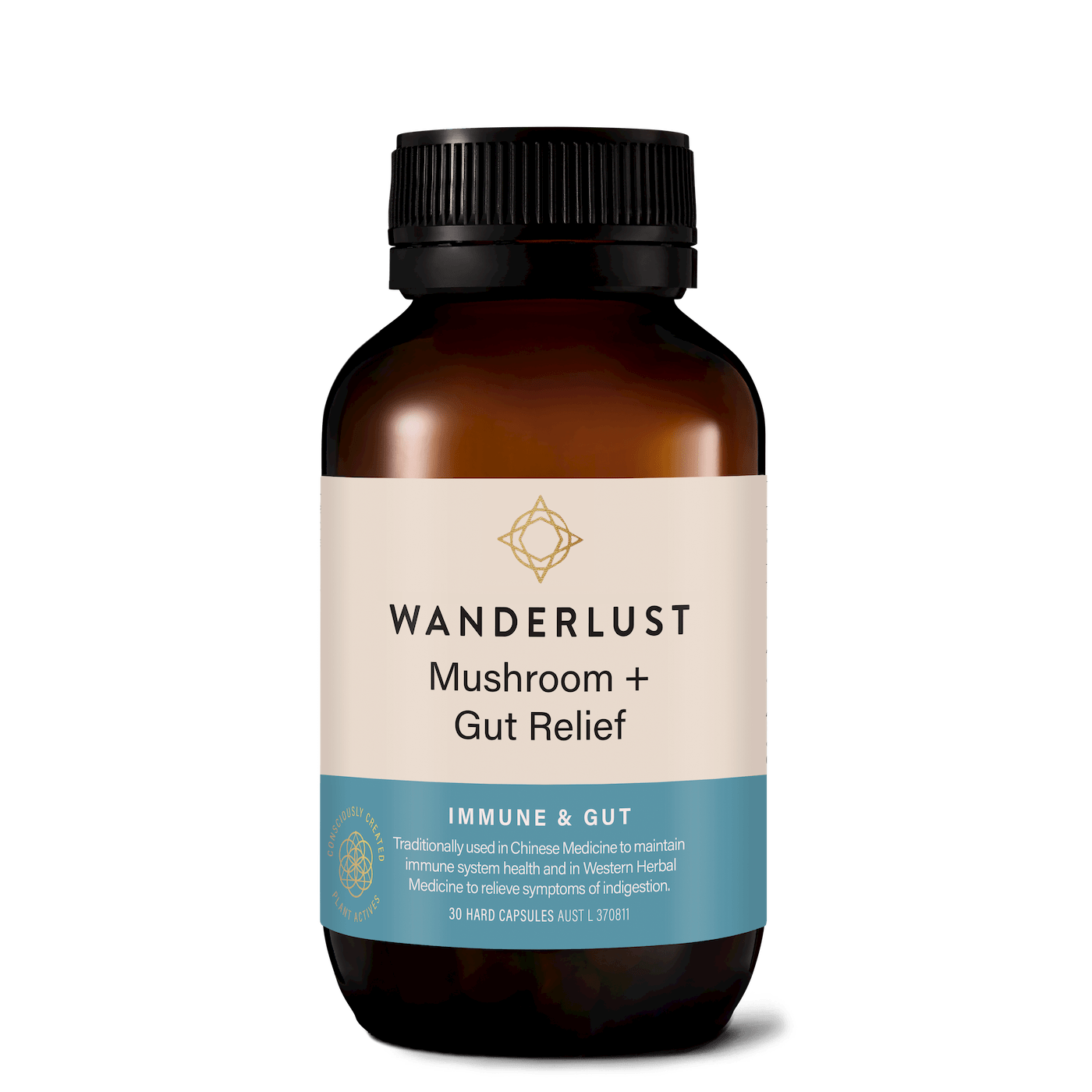
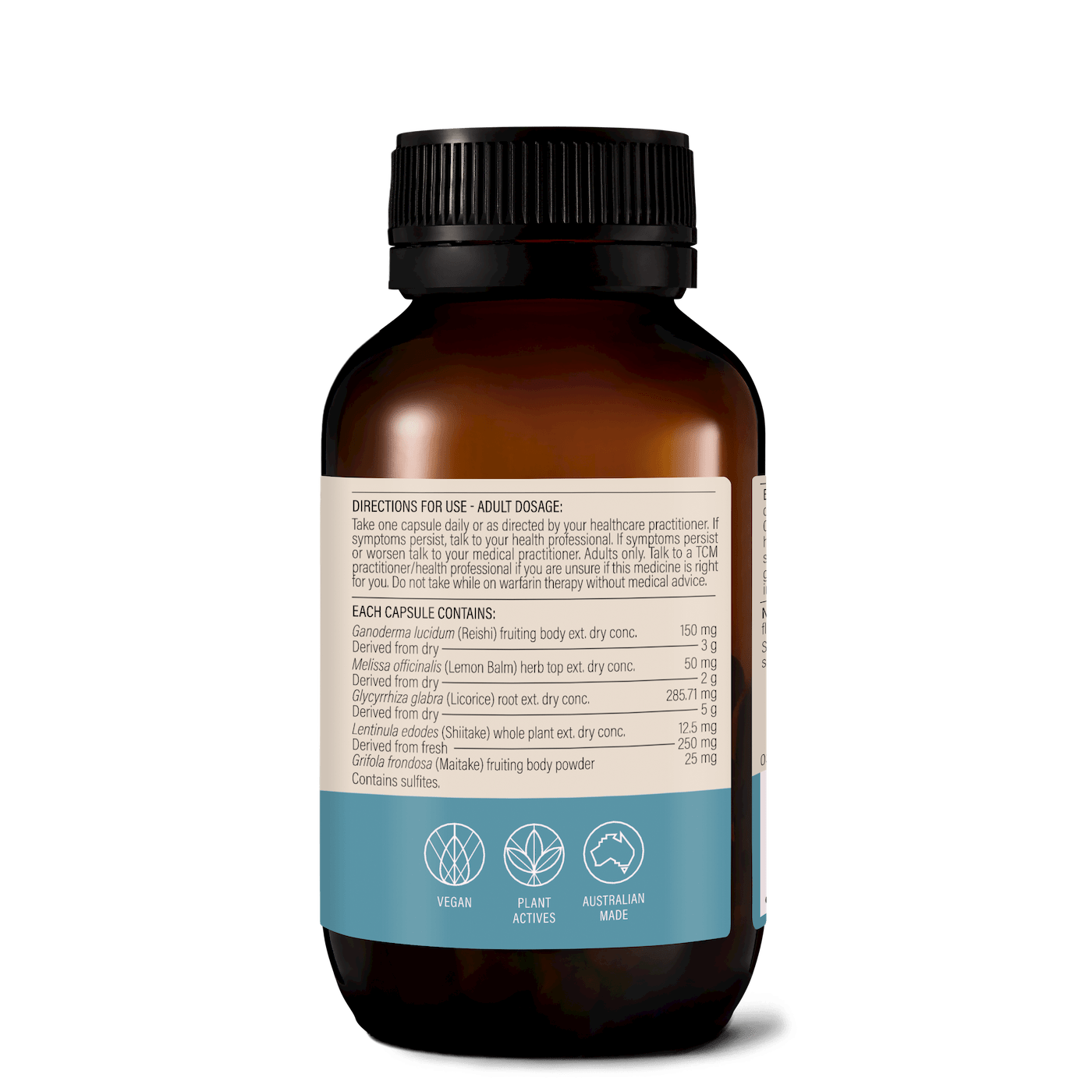
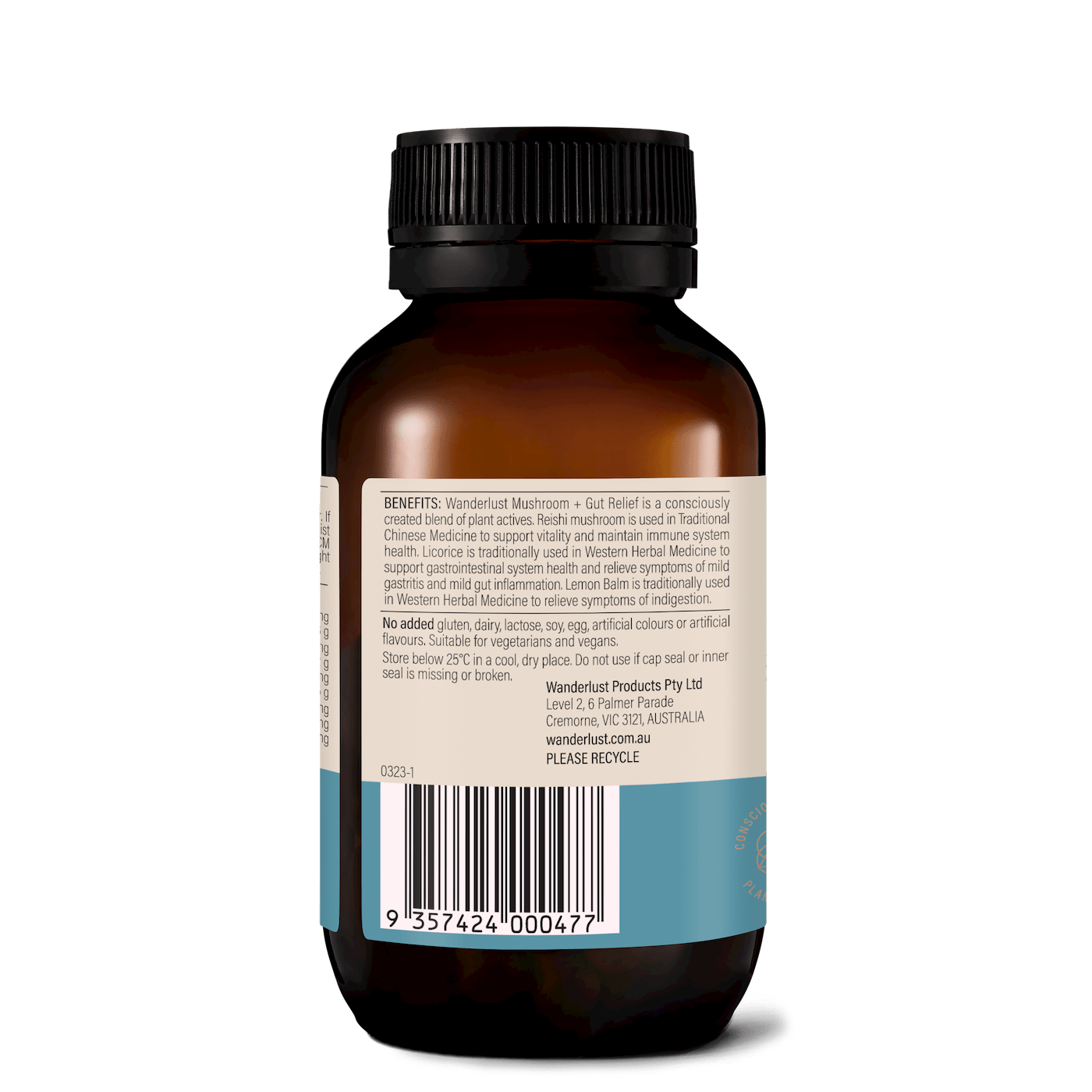
Ingredients
Reishi Mushroom
Ganoderma lucidum
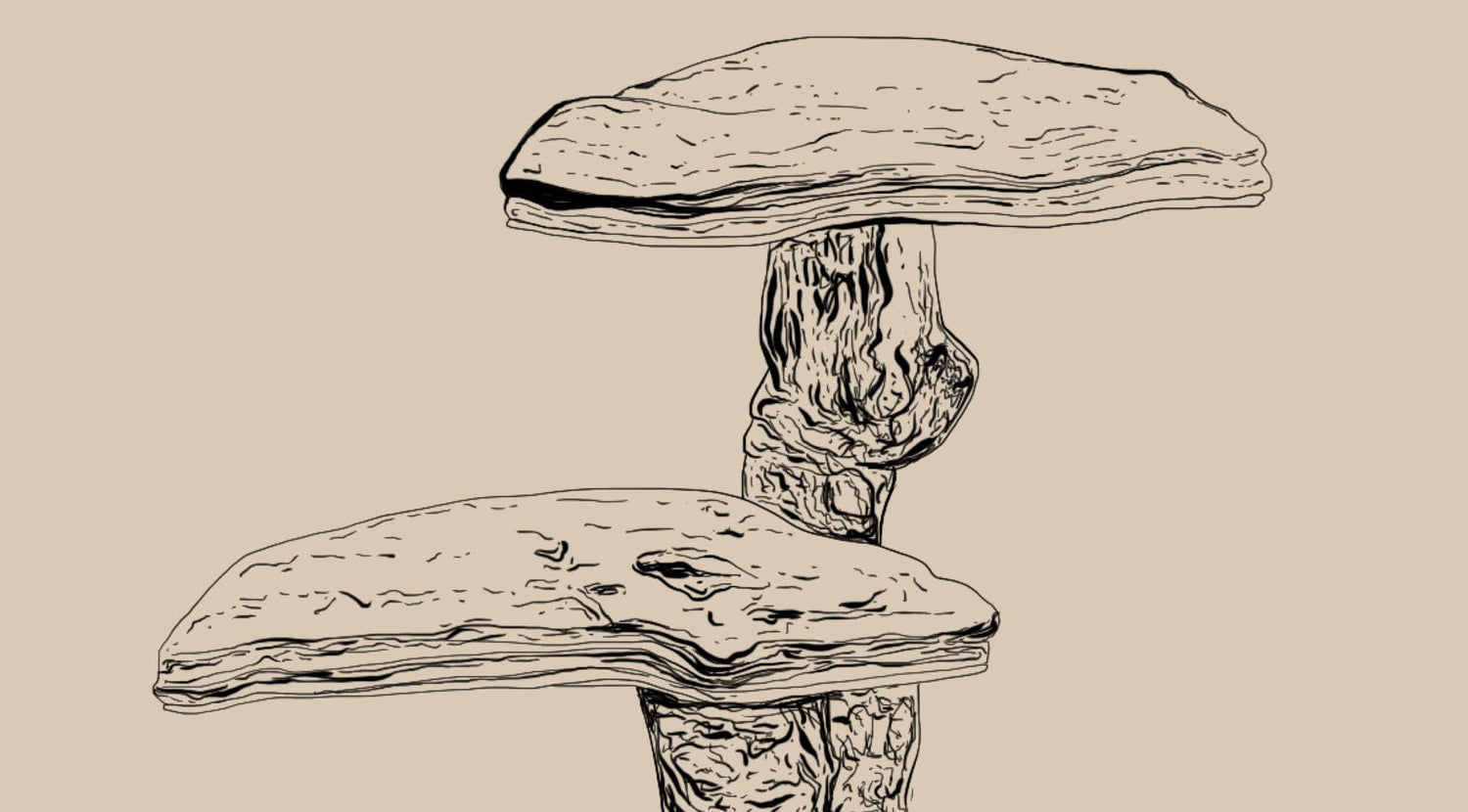
Shiitake Mushroom
Lentinula elodes
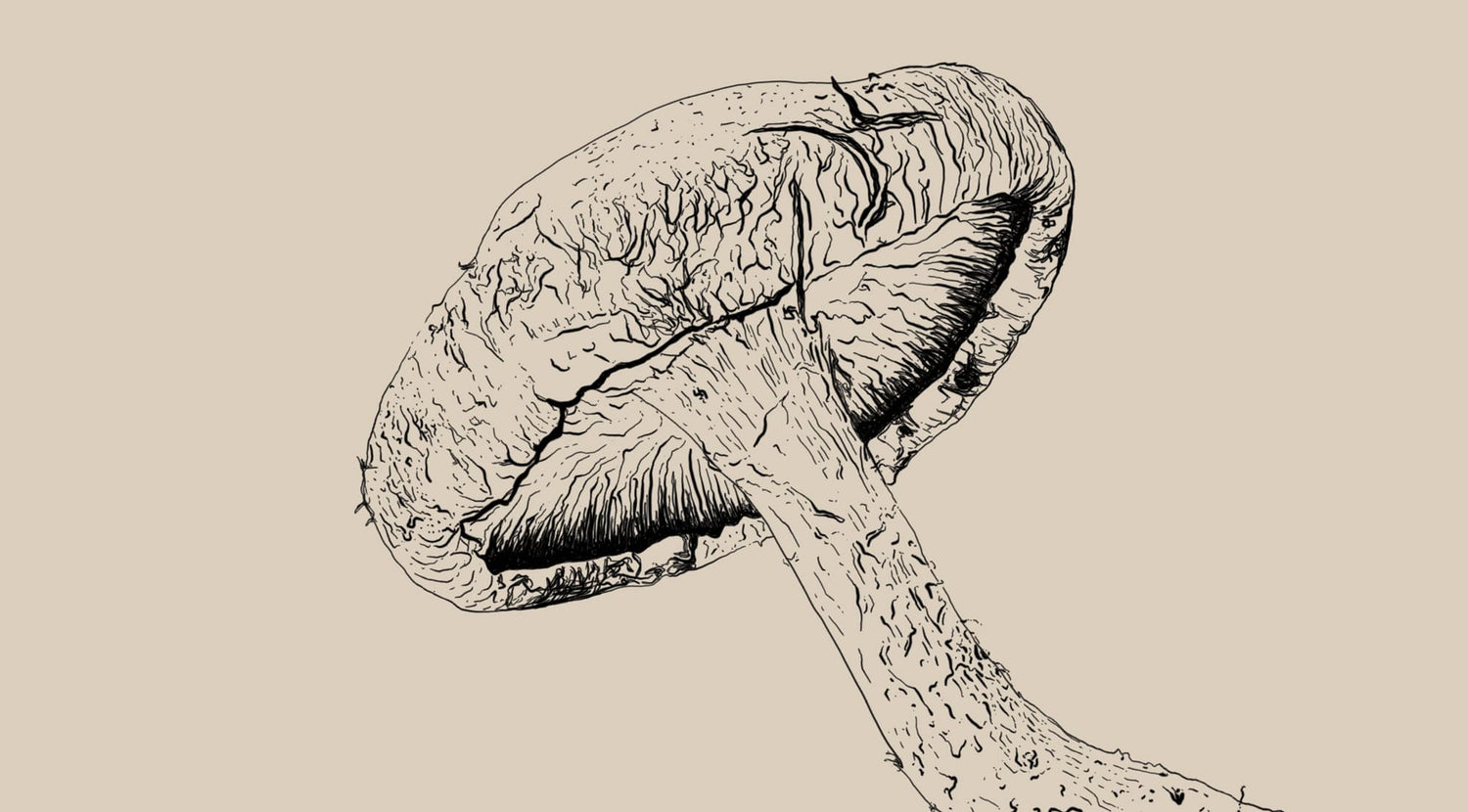
Maitake Mushroom
Grifola frondosa
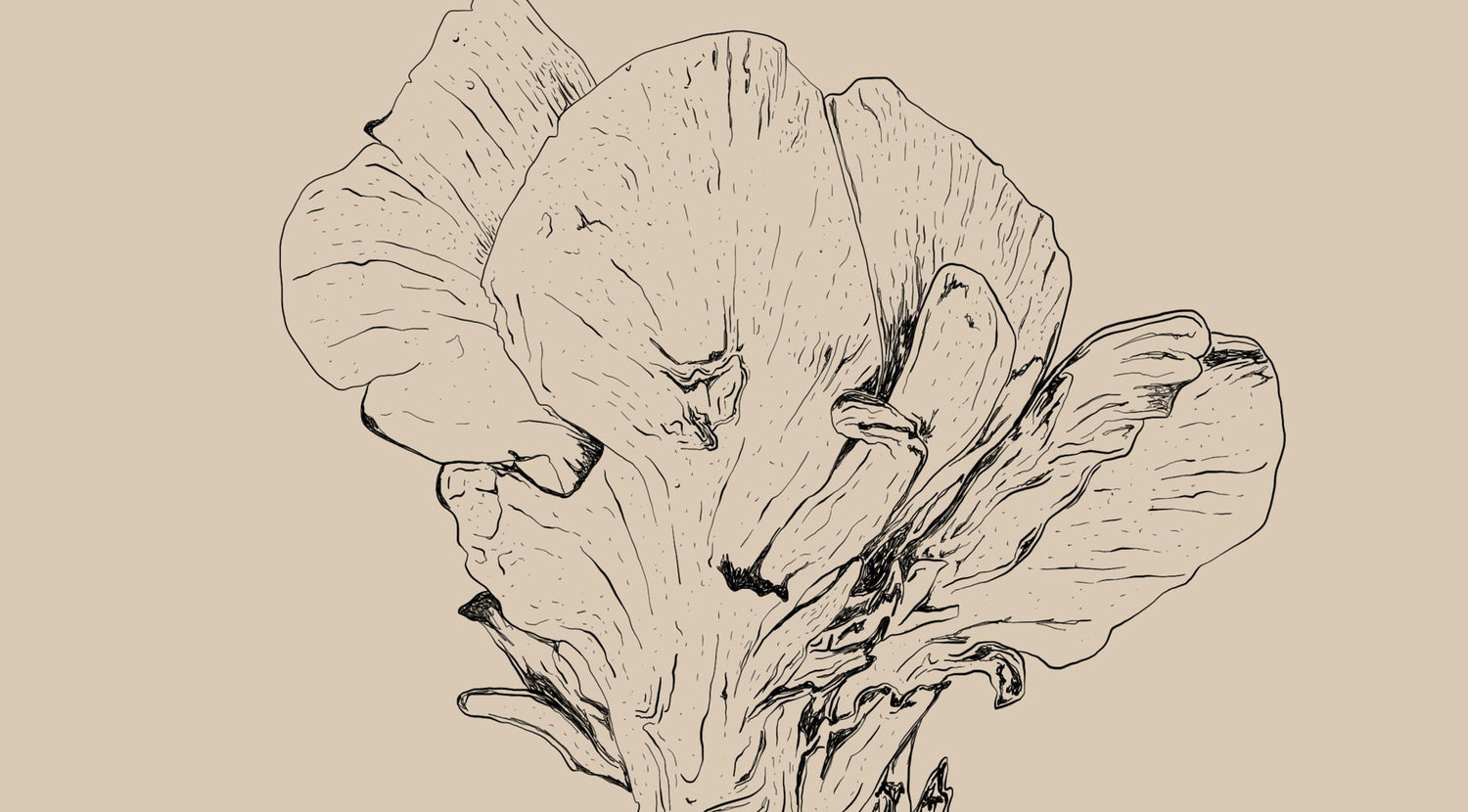
Lemon Balm
Melissa officinalis
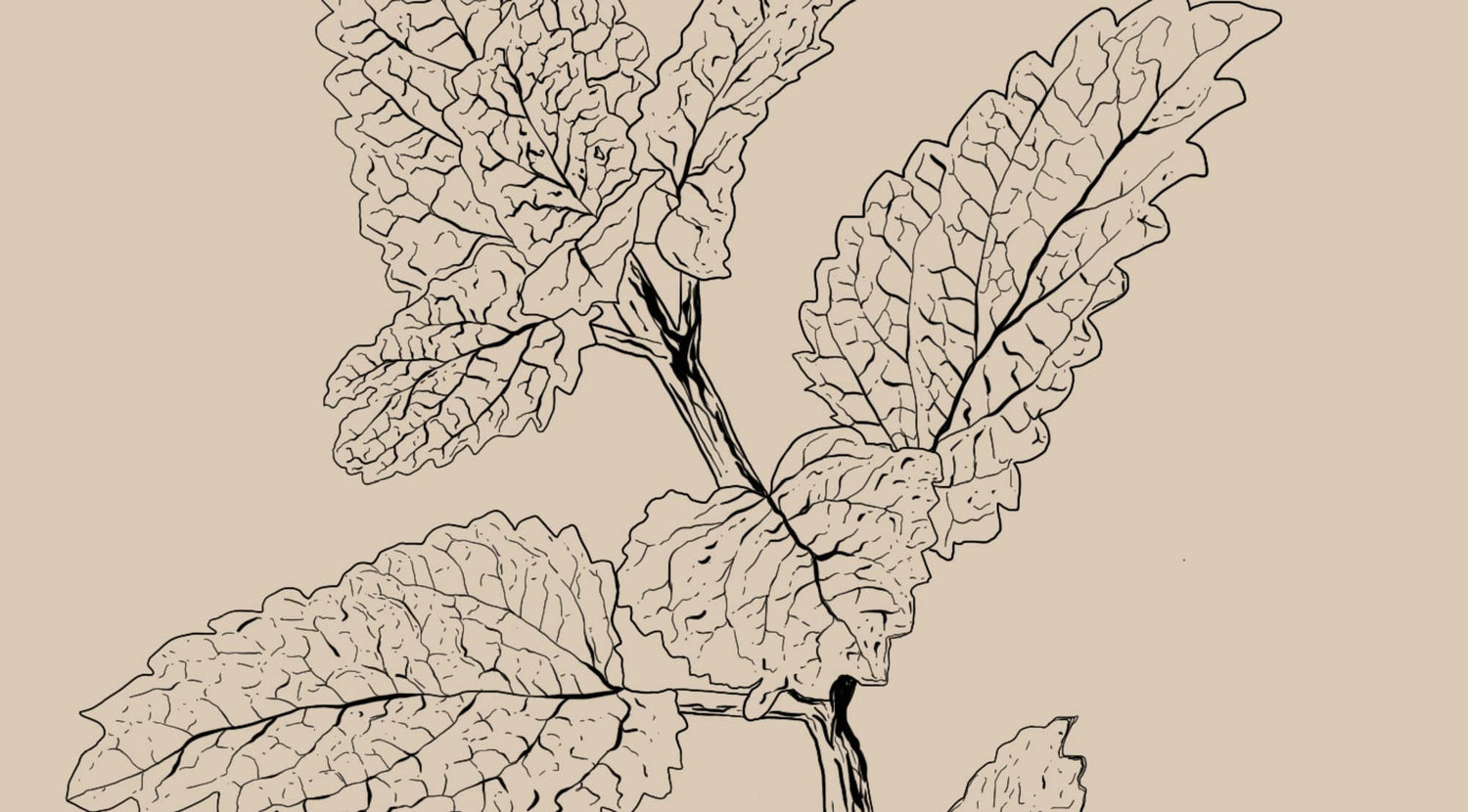
Licorice
Glycyrrhiza glabra
